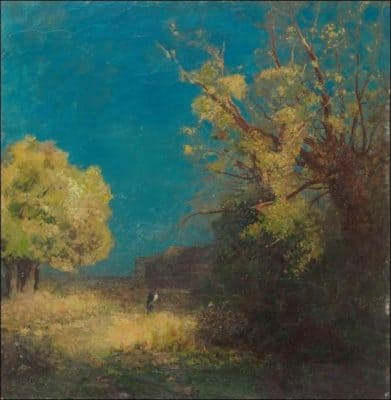January 18, 2018
Debussy and His Songs – A Blog

3. DEBUSSY, VOYAGER
contributed by Rachel Kesselman
Friday night, over an apéritif, I hear the question again:
Et alors, pourquoi tu es venue en France ? So, why did you come to France?
It is a question that naturally rises to the surface after a few introductory exchanges, one whose innocence both comforts and disturbs me. It signifies that the conversation is evolving at an appropriate pace, yet this question, this seemingly normal question, feels too consequential for a cocktail hour. It is a key question in the narrative of my life, one whose answer eludes me. I pause and look down at my glass.
“I thought I would find a more artistic people in France. A people who spoke my language.”
I get a laugh from my French company when I say this, but this time I am too distracted to pursue its meaning. I am directed to an elsewhere far away from the present chatter, from the fragrant bottle of Bordeaux.
The conversation moves on, then, to other things, and I am left dreaming of memories in search of a better answer. Why am I here? I see myself five years ago in the Music Room of Goodhart Hall, singing my senior recital. In this performance, I am traveling. I am enveloped in the snow globes of French mélodies; I am in the other world that Debussy seemed to have so loved himself, a world of pleasure.
The first Debussy mélodie I ever studied was “En Sourdine.” Verlaine’s poem shimmers even more mysteriously in Debussy’s setting, filled with nuance and a haunting climax. We’re first presented a scene of shadows and silence, an enticing invitation to pleasure. The speaker wants his lover to join this other world with him, in their love:
Calm in the half-light
That the high branches make,
Let us soak well our love
In this profound silence.
A series of imperatives follows, as the speaker tries to become one with the overwhelming beauty of nature around him. There is a desperation in his chase, a longing to return to some pure, natural state away from the banalities of human existence. Here, he and his lover will be safe from worry, from plans, from anything that might distract them from delight. In Debussy’s music, we feel the desire build and build in crescendo:
Let us mingle our souls, our hearts
And our ecstatic senses
Among the vague languors
Of the pines and the bushes.
Close your eyes halfway,
Cross your arms over your breast,
And from your sleeping heart
Chase away forever all plans.
Let us abandon ourselves
To the breeze, rocking and soft,
Which comes to your feet to wrinkle
The waves of auburn grass.
The dissonances in Debussy’s interpretation already give us a foreshadowing of what is to come. Night will fall. Human beings will become blind to the wonders in the forest. All we are left with is the song of the nightingale, “the voice of our despair”:
And when, solemnly, the evening
From the black oaks falls,
The voice of our despair,
The nightingale will sing.
For me, a key element of this poetry’s beauty is its acknowledgment that existence is always a little dissatisfying. The ability to admit, and thus truly feel the exquisite anguish of life and its temporary pleasures: this experience was something that always made me feel a little alien back home. As a college student dreaming of my future life, France was the magical place that understood me; it was Verlaine’s forest.
Back at the cocktail party, I realize that this state of longing that led me to Paris had little to do with the specific place of France. Rather, it was a symptom of being an artist: one who travels, in both imagination and reality, to foreign lands, searching. The restlessness Verlaine expresses is, after all, the single greatest motivator for creation. And so humanity contributes its own beauty alongside the natural world. And so we have Debussy’s stunning mélodies.
Rachel Kesselman is an alumna of Bryn Mawr College, class of 2012, where she double majored in French and English. She now lives in Paris where she is at work on a memoir and teaches English at a French high school.

Leave a Reply